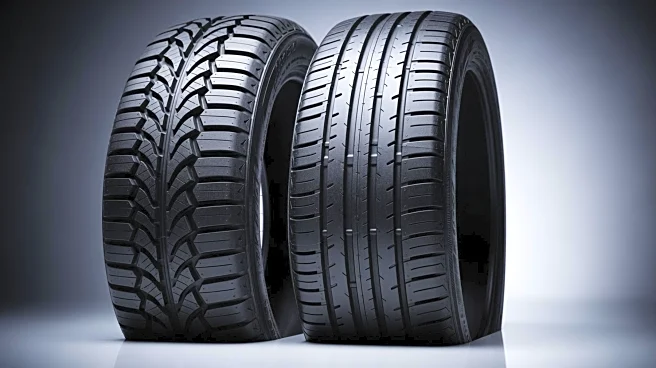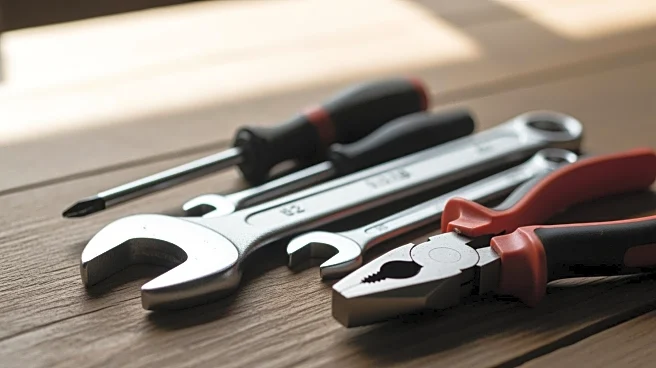What's Happening?
Vinted, a leading second-hand fashion platform, is considering a secondary share sale that could value the company at approximately €8 billion. This move aims to allow early investors to partially cash out while supporting the company's rapid expansion
across Europe. Vinted, which started as a local clothes-swapping site in 2008, has grown into a major resale platform, now including electronics, books, toys, and video games. The company is enhancing its logistics and payment capabilities to scale further. Vinted's revenues are projected to rise by 40% to over €1 billion this year, driven by €10 billion worth of goods sold on the platform. The company is also testing routes into the U.S. market, linking London and New York for cross-border trading.
Why It's Important?
The potential share sale is significant as it highlights the growing popularity and financial success of the second-hand fashion market, which is increasingly appealing to investors. Vinted's expansion into the U.S. market could further boost its growth and influence in the global resale industry. The company's ability to attract substantial investment reflects the broader trend of sustainable fashion and the shift towards circular economies. This development could impact traditional retail sectors, prompting them to adapt to changing consumer preferences for second-hand goods.
What's Next?
If the share sale proceeds, it could provide Vinted with the capital needed to enhance its market presence and logistics capabilities. The company's expansion into the U.S. market may lead to increased competition with existing resale platforms, potentially reshaping the industry landscape. Stakeholders, including investors and competitors, will likely monitor Vinted's strategic moves closely, assessing the implications for the broader retail and fashion sectors.
Beyond the Headlines
Vinted's growth underscores the ethical and environmental benefits of second-hand fashion, promoting sustainability and reducing waste. The company's success may encourage other businesses to explore similar models, contributing to a cultural shift towards more responsible consumption patterns.
















